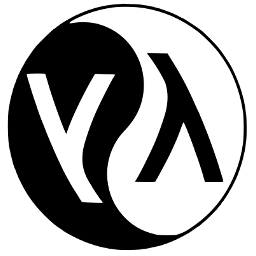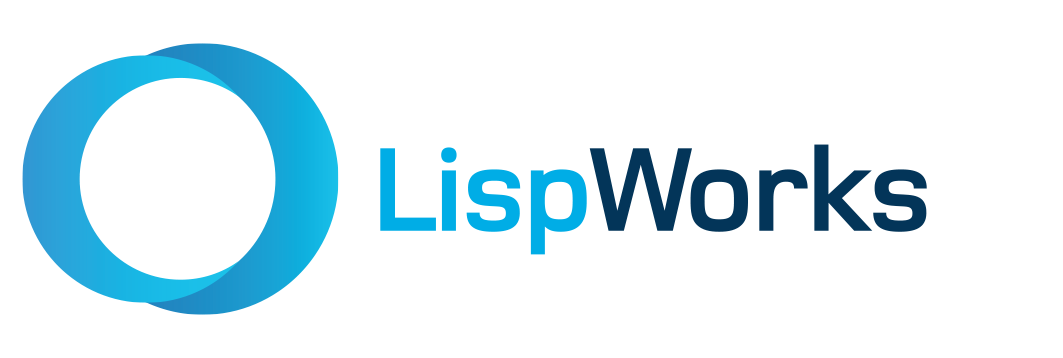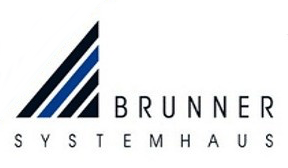Highlights
How the strengths of Lisp-family languages facilitate building complex and flexible bioinformatics applications
-
 Bohdan Khomtchouk Bohdan B. Khomtchouk University of Miami Miller School of Medicine (SPEAKER) Miami USA
Bohdan Khomtchouk Bohdan B. Khomtchouk University of Miami Miller School of Medicine (SPEAKER) Miami USA
We present a rationale for expanding the presence of the Lisp family of programming languages in bioinformatics and computational biology research. Put simply, Lisp-family languages enable programmers to more quickly write programs that run faster than in other languages. Languages such as Common Lisp, Scheme and Clojure facilitate the creation of powerful and flexible software that is required for complex and rapidly evolving domains like biology. We will point out several important key features that distinguish languages of the Lisp family from other programming languages, and we will explain how these features can aid researchers in becoming more productive and creating better code. We will also show how these features make these languages ideal tools for artificial intelligence and machine learning applications. We will specifically stress the advantages of domain-specific languages (DSLs): languages that are specialized to a particular area, and thus not only facilitate easier research problem formulation, but also aid in the establishment of standards and best programming practices as applied to the specific research field at hand. DSLs are particularly easy to build in Common Lisp, the most comprehensive Lisp dialect, which is commonly referred to as the 'programmable programming language'. We are convinced that Lisp grants programmers unprecedented power to build increasingly sophisticated artificial intelligence systems that may ultimately transform machine learning and artificial intelligence research in bioinformatics and computational biology.
-
Identity in a World of Values
-
 Hans Hübner Hans Hübner LambdaWerk GmbH (SPEAKER) Berlin Germany
Hans Hübner Hans Hübner LambdaWerk GmbH (SPEAKER) Berlin Germany
Data persistence can add a great deal of complexity to application software, and making the gap between application and storage has been a constant field of research, experiments and products. In the object oriented programming paradigm, persistence seems to be a natural extension to object behavior, and even though one could argue that many persistent object systems have flaws and leak their abstractions, there is a large body of prior art and research in that area. In the functional programming world, persistence does not find as natural a partnering abstraction, and it is often either conceptionally pushed to the boundaries of the application, or treated in an ad-hoc fashion interleaved with the beauty and conceptional rigor of pure functions. The presentation discusses these forces and explores how Clojure's Software Transactional Memory system can be used to implement application data persistence.
-
Location
Organization
Programme Chair
-
 Alberto Riva Alberto Riva University of Florida (PROGRAMME-CHAIR) USA
Alberto Riva Alberto Riva University of Florida (PROGRAMME-CHAIR) USA
Organizing Chair
-
 Didier Verna Didier Verna https://www.didierverna.info EPITA / LRE (ORGANIZING-CHAIR SPEAKER) France
Didier Verna Didier Verna https://www.didierverna.info EPITA / LRE (ORGANIZING-CHAIR SPEAKER) France
Committee
-
 Alessio Stalla Alessio Stalla Many Designs s.r.l. (COMMITTEE) Italy
Alessio Stalla Alessio Stalla Many Designs s.r.l. (COMMITTEE) Italy -
 António Leitão António Menezes Leitão Technical University of Lisbon (COMMITTEE) Portugal
António Leitão António Menezes Leitão Technical University of Lisbon (COMMITTEE) Portugal -
 Chris Stacy Chris Stacy CS Consulting (COMMITTEE)
Chris Stacy Chris Stacy CS Consulting (COMMITTEE) -
 Christian Queinnec Christian Queinnec Université Pierre et Marie Curie (COMMITTEE) France
Christian Queinnec Christian Queinnec Université Pierre et Marie Curie (COMMITTEE) France -
 Erick Gallesio Erick Gallesio Université de Nice Sophia Antipolis (COMMITTEE) France
Erick Gallesio Erick Gallesio Université de Nice Sophia Antipolis (COMMITTEE) France -
 François-René Rideau François-René Rideau Bridgewater Associates (COMMITTEE SPEAKER) USA
François-René Rideau François-René Rideau Bridgewater Associates (COMMITTEE SPEAKER) USA -
 Henry Lieberman Henry Lieberman MIT (COMMITTEE) USA
Henry Lieberman Henry Lieberman MIT (COMMITTEE) USA -
 Jay McCarthy Jay McCarthy University of Massachusetts (COMMITTEE) Lowell USA
Jay McCarthy Jay McCarthy University of Massachusetts (COMMITTEE) Lowell USA -
 Marc Battyani Marc Battyani Fractal Concept (COMMITTEE)
Marc Battyani Marc Battyani Fractal Concept (COMMITTEE) -
 Marc Feeley Marc Feeley Université de Montreal (COMMITTEE) Canada
Marc Feeley Marc Feeley Université de Montreal (COMMITTEE) Canada -
 Marco Antoniotti Marco Antoniotti Università Milano Bicocca (COMMITTEE) Italy
Marco Antoniotti Marco Antoniotti Università Milano Bicocca (COMMITTEE) Italy -
 Mark Tarver Mark Tarver Shen Programming Group (COMMITTEE)
Mark Tarver Mark Tarver Shen Programming Group (COMMITTEE) -
 Nick Levine Nick Levine RavenPack (COMMITTEE) Spain
Nick Levine Nick Levine RavenPack (COMMITTEE) Spain -
 Nikodemus Siivola Nikodemus Siivola ZenRobotics Ltd (COMMITTEE)
Nikodemus Siivola Nikodemus Siivola ZenRobotics Ltd (COMMITTEE) -
 Rainer Joswig Rainer Joswig Independent Consultant (COMMITTEE) Germany
Rainer Joswig Rainer Joswig Independent Consultant (COMMITTEE) Germany -
 Theo D'Hondt Theo D'Hondt Vrije Universiteit Brussel (COMMITTEE) Belgium
Theo D'Hondt Theo D'Hondt Vrije Universiteit Brussel (COMMITTEE) Belgium
Programme
Times are local to the conference. You can download the programme in iCalendar format here.April 3rd
Welcome Message
Identity in a World of Values
- Hans Hübner
Coffee
Common Lisp UltraSpec - A Project For Modern Common Lisp Documentation
- Michal Herda
Loading Multiple Versions of an ASDF System in the Same Lisp Image
- Vsevolod Domkin
Lunch
A Lisp Way to Type Theory and Formal Proofs
- Frederic Peschanski
Programmatic Manipulation of Common Lisp Type Specifiers
- Jim Newton
- Didier Verna
- Maximilien Colange
Type Inference in Cleavir
- Alexander Wood
Coffee
Delivering Common Lisp Applications with ASDF 3.3
- Robert Goldman
- Elias Pipping
- François-René Rideau
Radiance – a Web Application Environment
- Yukari Hafner
Teaching Students of Engineering some Insights of the Internet of Things using Racket and the RaspberryPi
- Daniel Brunner
- Stephan Brunner
Interactive Functional Medical Image Analysis
- Benjamin Seppke
- Leonie Dreschler-Fischer
Lightning Talks
April 4th
How the strengths of Lisp-family languages facilitate building complex and flexible bioinformatics applications
- Bohdan Khomtchouk
Parallelizing Femlisp
- Marco Heisig
- Nicolas Neuss
Coffee
General Game Playing in Common Lisp
- Steve Losh
Lunch
Fast, Maintainable, and Portable Sequence Functions
- Irène Durand
- Robert Strandh
DIY Meta Languages with Common Lisp
- Alexander Lier
- Kai Selgrad
- Marc Stamminger
Static Taint Analysis of Event-driven Scheme Programs
- Jonas De Bleser
- Quentin Stiévenart
- Jens Nicolay
- Coen De Roover
Coffee
on the {lambda way}
- Alain Marty
Writing a portable code walker in Common Lisp
- Mikhail Raskin
Removing redundant tests by replicating control paths
- Irène Durand
- Robert Strandh
Lightning Talks
Conference End



